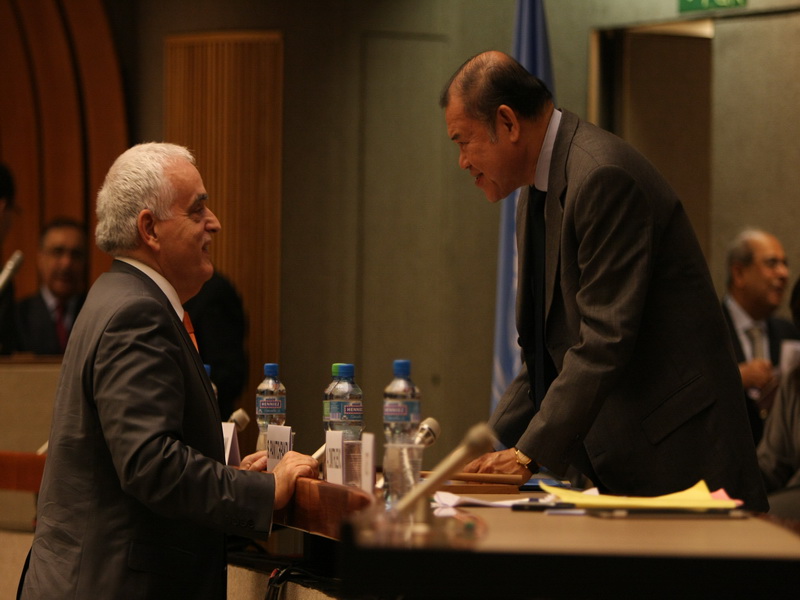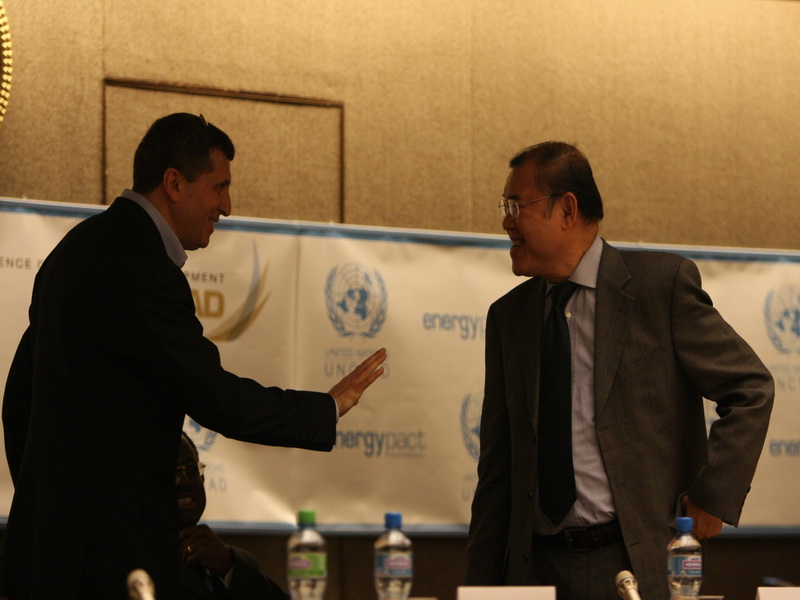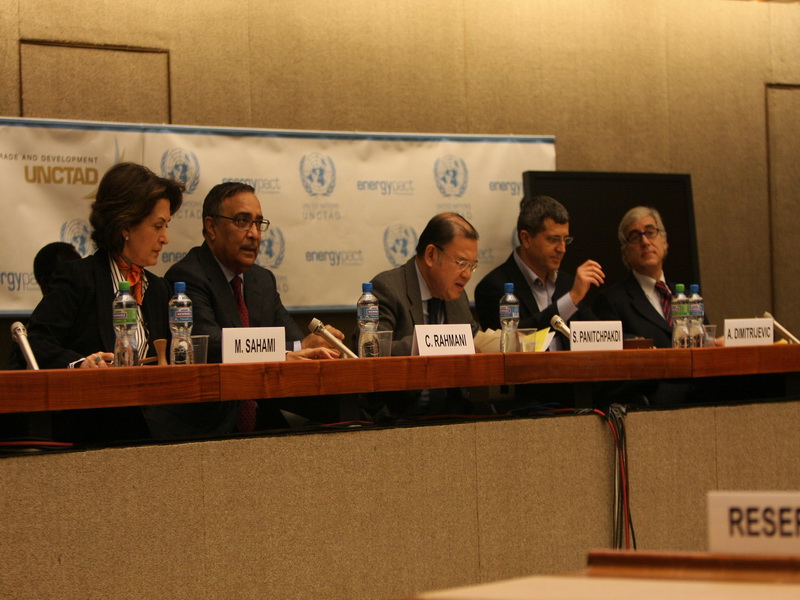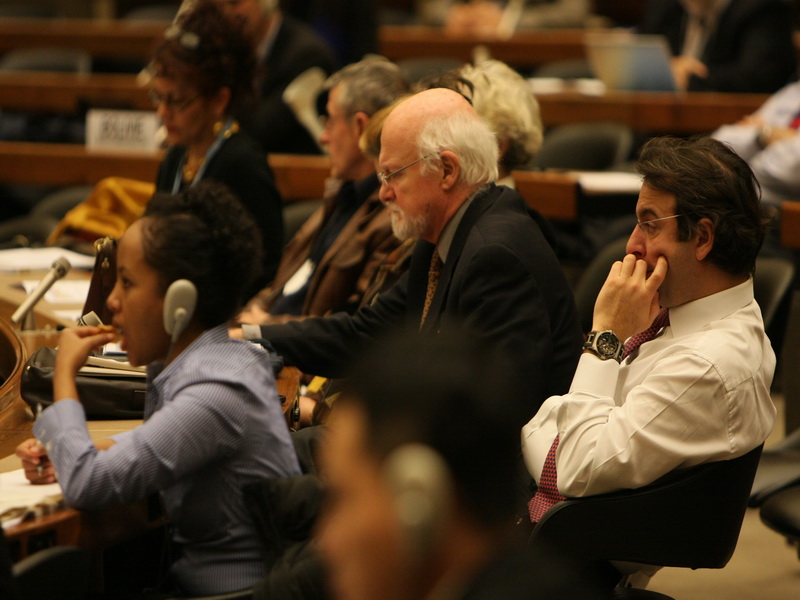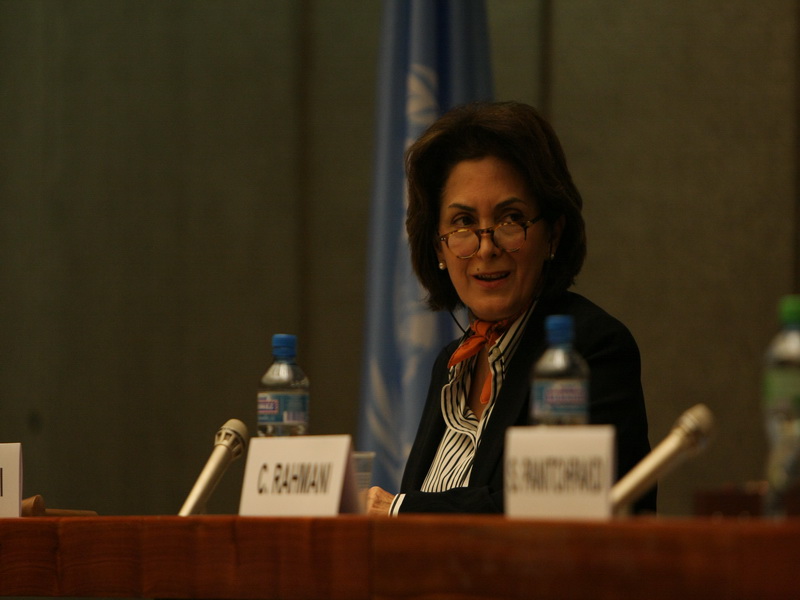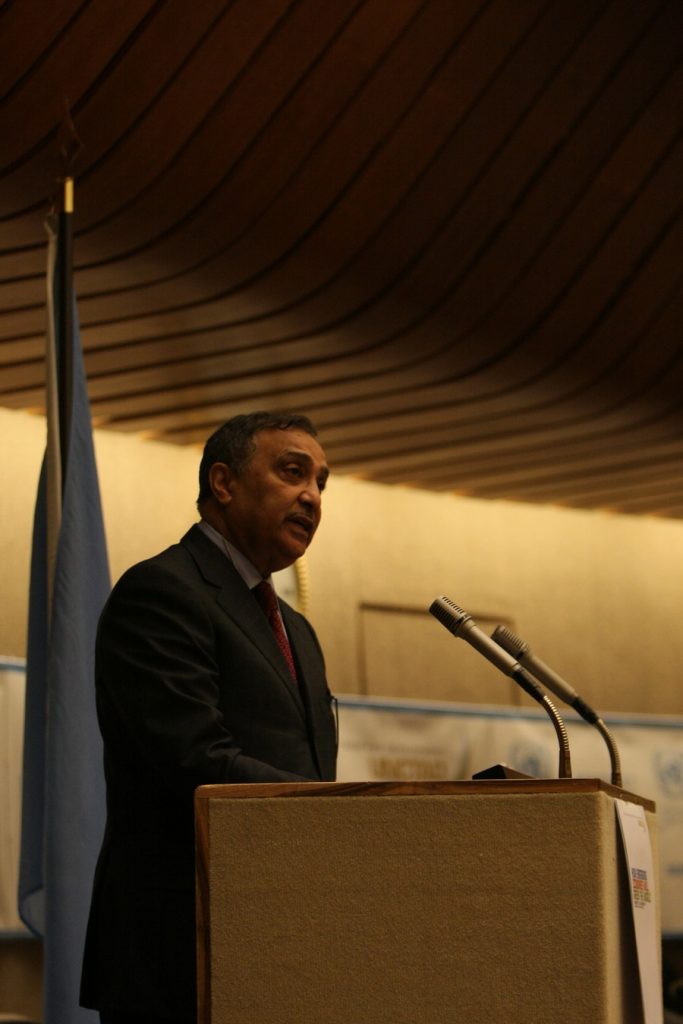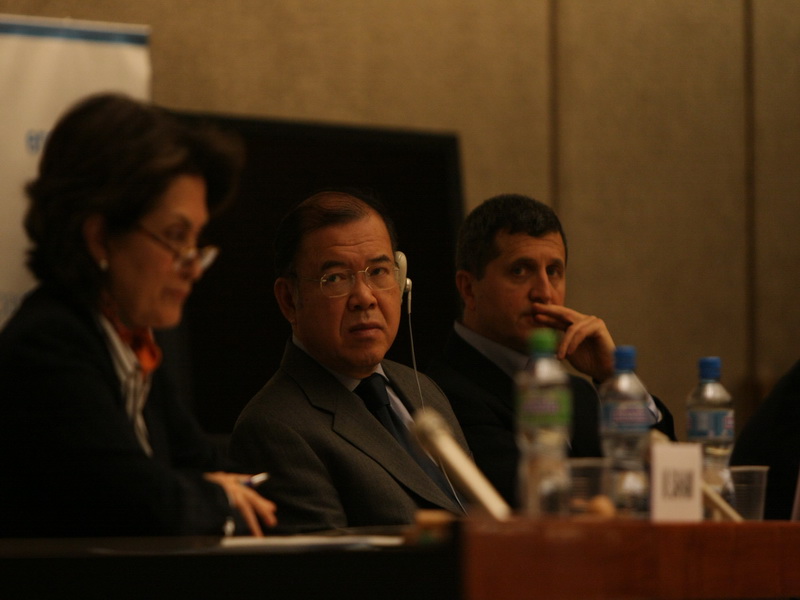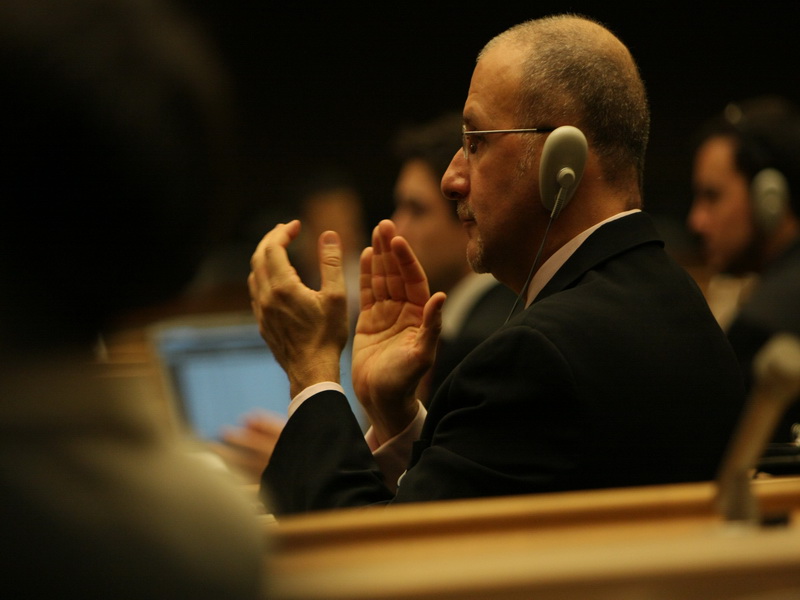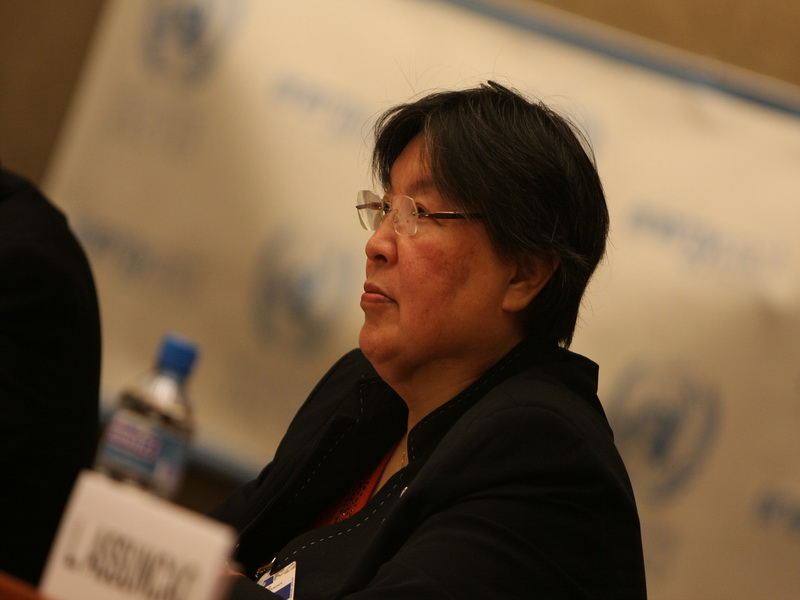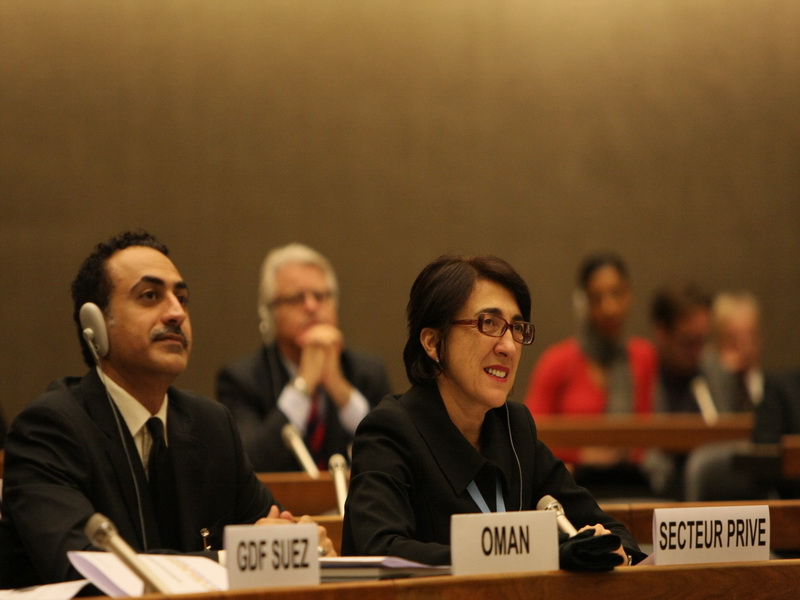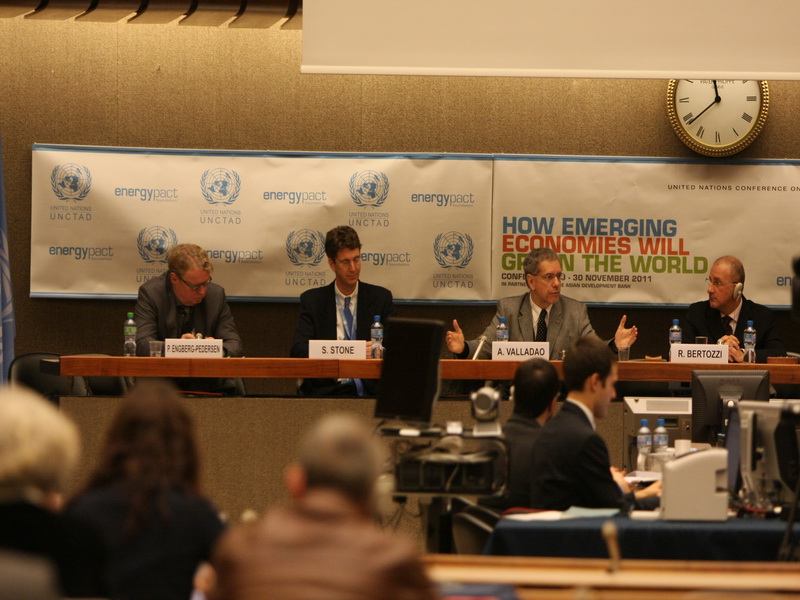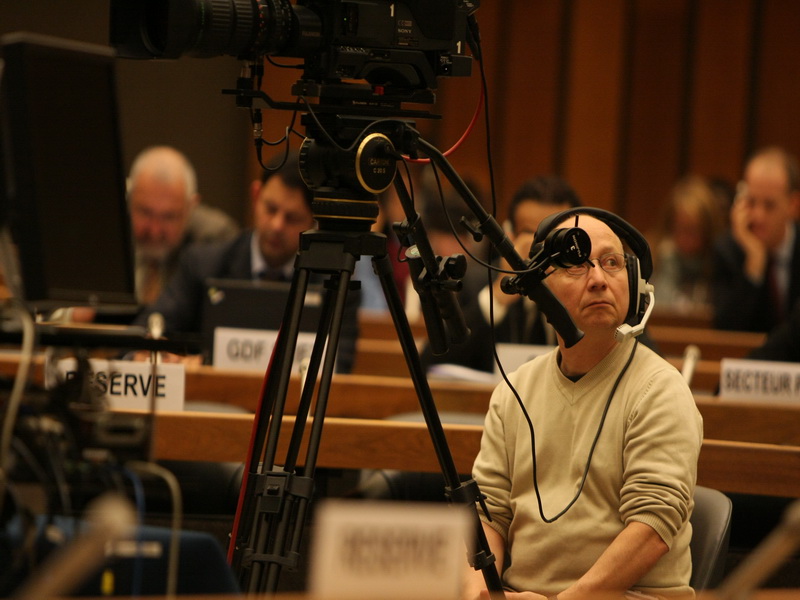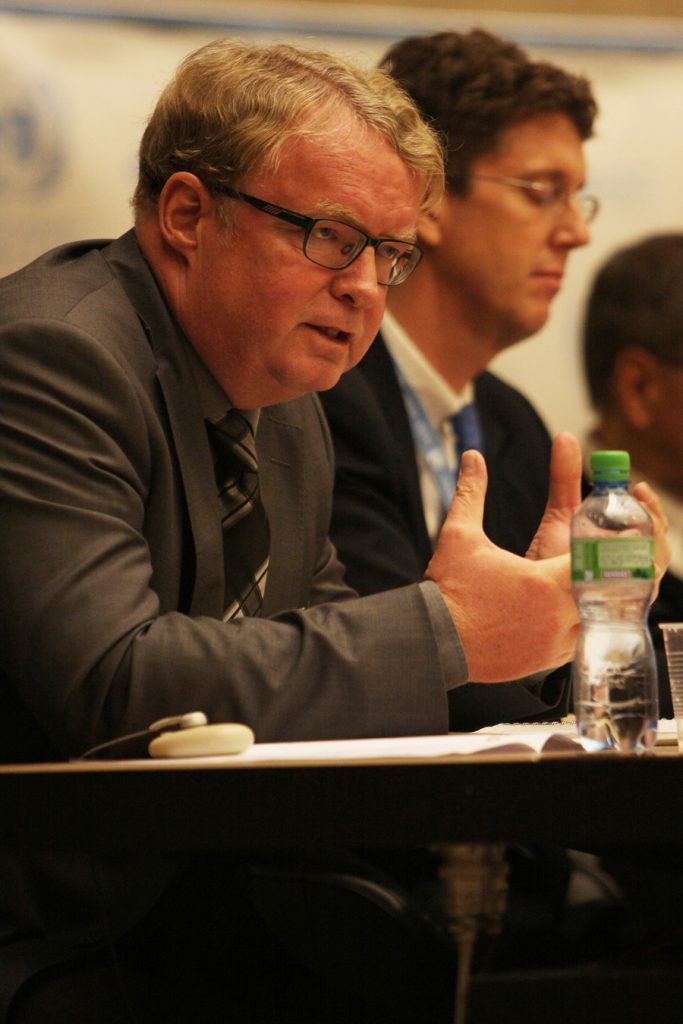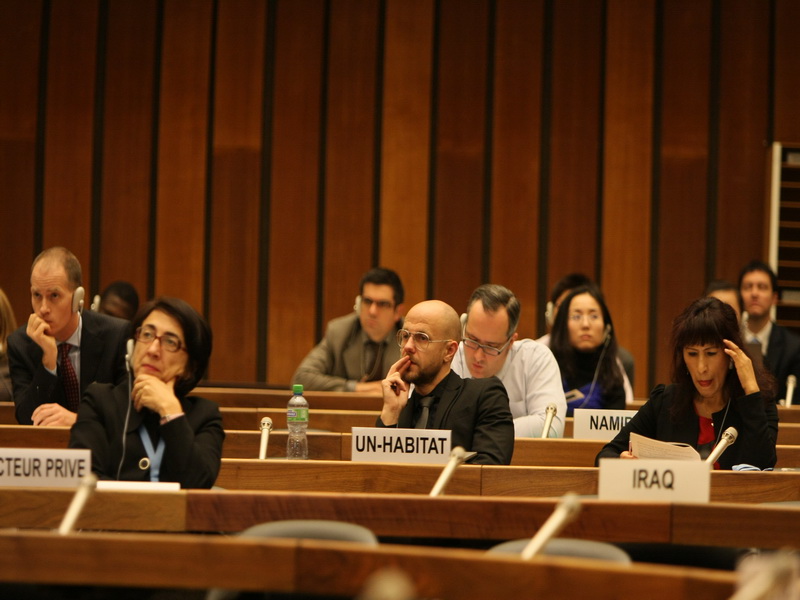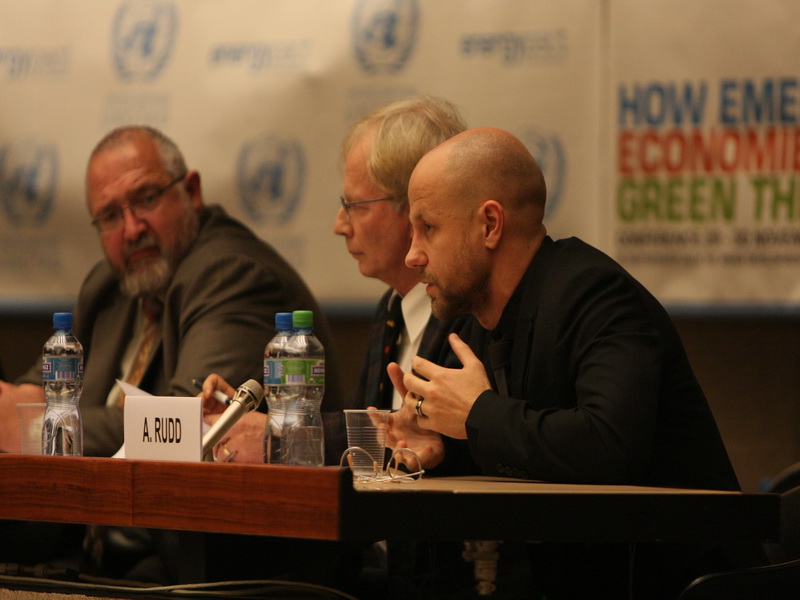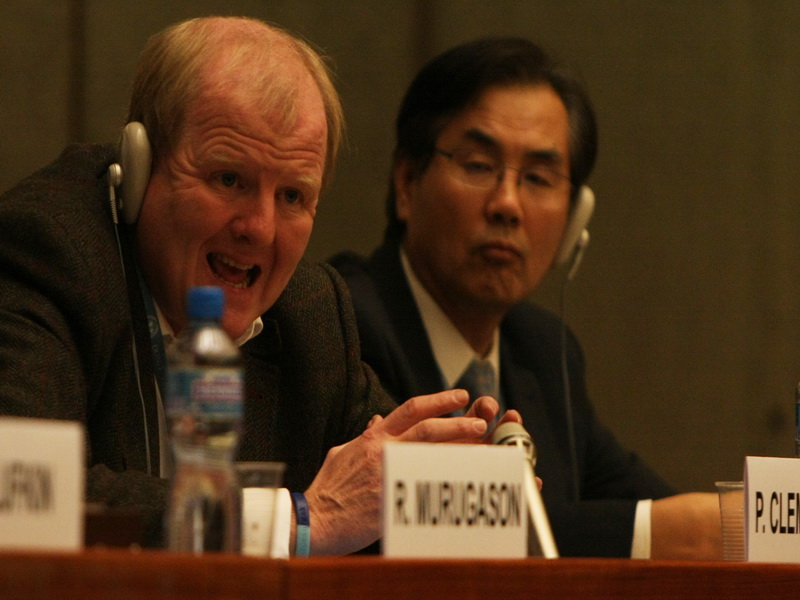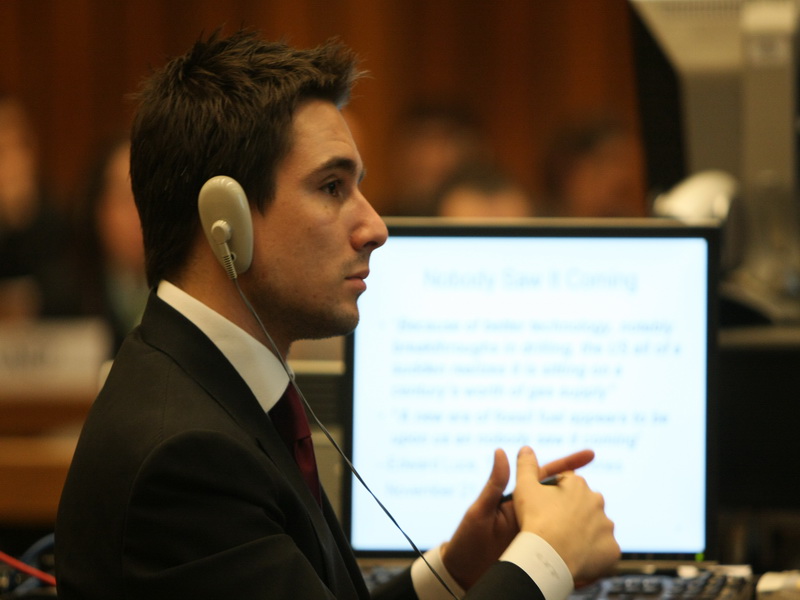The somehow provocative theme of the 2011 EnergyPact UNCTAD conference aims at addressing energy and climate change issues under new perspectives. For the first time a major conference dedicated to the energy-environment-development triangle will explore the sustainable and green economy agendas of emerging markets in a specific way.
How emerging economies will green the world
2011 EnergyPact UNCTAD Conference
How emerging economies will green the world
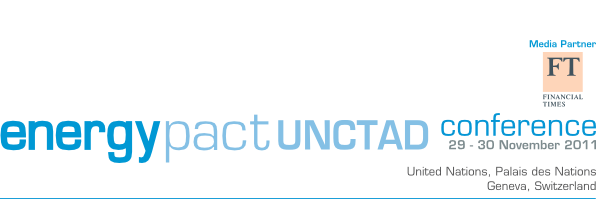


Supachai Panitchpakdi
Secretary-General of UNCTAD
“We are facing two fundamental challenges: access to sufficient energy sources at affordable prices and sustainability. We now have the technology needed. We must intensify technology transfer and encourage knowledge sharing. “
 Gerhard Schröder
Gerhard Schröder
Former Chancellor of Germany and Chairman of the Energy Pact Conference
“We need a multilateral approach to energy policy and a system of cooperative energy security.
Changes to the climate represent a huge threat since the social and ecological impact they make, have the potential to disrupt geopolitical stability. “

Ali Al-Naimi
Minister of Petroleum and Mineral Ressources, Saudi Arabia
“Much is at stake in the energy debate, with issues ranging from security of supply and future demand to environ-mental sustainability and energy for emerging economies looming large – all against a backdrop complicated by today’s tough economic conditions.“
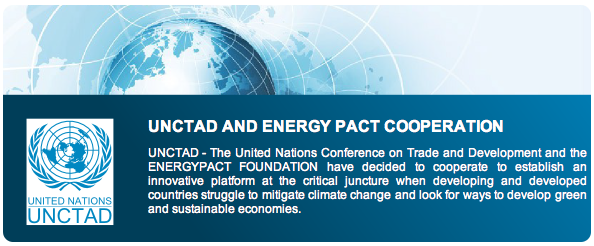

Concept Paper
The somehow provocative theme of the 2011 EnergyPact UNCTAD conference aims at addressing energy and climate change issues under new perspectives.
For the first time a major conference dedicated to the energy-environment-development triangle will explore the sustainable and green economy agendas of emerging markets in a specific way.
The definition of “emerging countries” is rather fluid, but they all fit into the category of the “Global Growth Generators” (3G Countries), whose economies have the most promising growth prospects for the next decades. Significant reductions in poverty and the development of a middle class with consumption patterns, lifestyle expectations and socio-political interests and demands increasingly similar to those of its counterparts in developed economies is an important common feature of these economies.
Besides the front runners Brazil, Russia, India, China and South Africa, who are institutionalizing their cooperation; there are around 30 countries which can be considered as emerging economies.
Emerging and developing countries are mostly seen through the lenses of their massive growth needs, large and growing environmental footprint and reluctance towards binding levels of CO² emissions.
But being unwilling to adhere to obligatory frameworks does not mean not to be committed to change.
Instead, emerging economies, in which half of the world’s population lives now, are positioning themselves, in different ways, as key drivers in the transition to the green economy. They are creating increasingly cost-effective technologies for supplying energy in developing countries. They have every reason to do so.
The green wealth
Today, 80% of young people in the world live in developing and emerging countries. They need education and jobs. These countries understand that the greening of economies is a new engine of growth. An enormous potential rests on the synergies between the green economy and the knowledge-based economy, as climate change mitigation cannot succeed without large-scale innovation in energy production and use.
Furthermore, emerging and developing countries are much more vulnerable than developed countries to the disastrous effects of climate change. The risk for a citizen to be exposed to a climate-related natural disaster is 79 times higher in a developing country than in an OECD one.
Failure to succeed in climate change mitigation could cause economic losses ranging from 5% to 20% of the world’s GDP by 2050. Emerging and developing countries are well aware of estimates that they would bear around 75% of the costs of inaction.
On the other hand, the International Energy Agency foresees 750 billion USD investments per annum in green technologies worldwide. A growing share of these flows of green finance may benefit to emerging and developing countries, either as indigenous investments, or by attracting foreign direct investment (FDI), provided that the right policies to develop their technological capabilities are put in place at the national and international levels.
National agendas, multilateral dynamics
Therefore, emerging and developing countries have a strategic interest in seriously tackling climate change and in contributing to shaping the optimal energy mix for the 21st century.
All emerging economies have ratified the Kyoto Protocol, and all are proactively seeking for the best post-Kyoto solutions. Although their legitimate development needs imply a temporary surge of their emissions of greenhouse gases; they are mobilizing their resources for the parallel transformation of their growth patterns. They will not reduce their development. Instead, they will green their growth.
Emerging economies and resource-rich countries need to define their optimal energy mix in line with their natural assets, comparative advantages and specific strategies towards a greener economy – while contributing to the overall effort of the multilateral system in various Organizations and under different formats of international negotiations. Their national agendas complement the global policy framework in the making, towards a more cohesive and cooperative governance for sustainable development.
In this context, the role of emerging countries as key drivers needs to be better perceived, understood and encouraged.
In the fight against climate change, every kind of effort is needed. Greenhouse emissions, whatever their cause, have all the same impact. So we don’t need controversy, but an addition of solutions. No one has the monopoly of policy-formulation.
Advanced cooperations
Each initiative, each policy, each innovation acts as a building-block. India, China, Brazil for example are designing greening strategies adapted to their own context — successfully.
Here the role of emerging powers is crucial: first because they are in the process of massive infrastructure building, urban planning and social change; thus the way they are designing their policies will have a tremendous effect. Secondly, because they can enter into partnerships with leading developed countries in a big scale.
As the world’s top emitters consist in a group of 15 countries, any agreement among them or with any of them can bring decisive progress to solving the global threat we all face, and at the same time foster innovation, generate investments, create new jobs.
Rather than excessively pointing at individual responsibilities, the international community may grasp bigger and faster gains in promoting approaches based on convergence, partnership and advanced cooperations on a voluntary basis.
The EnergyPact UNCTAD 2011 Conference will put into new perspectives how emerging countries will decisively contribute in this spirit to the multilateral transition towards a greener economy.
Nuclear energy in the transition to the green economy
The recent nuclear crisis in Japan, caused by a series of natural disasters of unprecedented magnitude, should not delay the necessary assessment of the role of nuclear power in the energy mix of the 21st century. Key issues such as technology innovation, generation IV or thorium-based reactors; small- scale reactors; environmental effects, human health and safety, waste management, training of skilled manpower; must be addressed without taboos.
In the next decades, new clean and renewable technologies will not be sufficiently available, and not all at affordable prices, to respond to the growing needs of the world economy and to create an efficient low-carbon supply system. The fact is that by 2030 fossil energy will still account for 75% of the world’s production of energy; while nuclear power is set to represent up to 5% of energy output by 2050. Nuclear energy is likely to remain an important component of the energy mix of many countries during the transition to a green economy. Over 45 countries in the five continents are now embarking upon nuclear power programs. Some 65 countries, mostly emerging and developing ones, have expressed, in total, interest for nuclear power. Even if we are witnessing the suspension of nuclear activities and initiatives, we need to re-think the civil nuclear agenda of the years and decades ahead in light of the current indispensability of this energy source.
Launch of UNCTAD Technology and Innovation Report 2011
The Technology and Innovation Report (TIR) 2011 focuses on policy issues and options to address energy poverty and climate change mitigation through the greater use of renewable energy technologies (RETs). The Report identifies key issues in technology and innovation for the greater use of renewable energy technologies and argues that there are numerous benefits of RETs for developing countries. The potential impacts of RETs in terms of reducing energy poverty, generating employment and creating new production and innovative activity add to their environmental advantages. The session will aim to present and launch the Report itself.
Converting to the green economy: the new energy mix, the new energy pact
Converting to the green economy is not only one of today’s most pressing global challenges; it is also one of the most promising new frontiers for innovation, growth and the rise of a sustainable civilization. The world today needs a collective, coordinated, cohesive and convergent effort embracing all countries. The United Nations system provides the most likely framework in which such an approach for the development of a global green economy can succeed.
The top decision-makers who will speak at the official opening plenary session will deliver different views towards a shared vision: how climate change can be transformed from one of mankind’s biggest perils into one of humanity’s most promising and transforming challenges.
Urbanization: part of the problem, part of the solution
The fast pace of urbanization in emerging and developing countries is becoming one of the most massive and pressing problems for climate change mitigation, development, and the transition to a greener economy.
Cities are big energy consumers, big emitters, big polluters – but also the laboratories of our future way of life and places where eco-solutions are concentrated, tested and spread. Soon most of the world’s population will be living in urban areas. Cities already use 75 % of the world’s energy output and emit 75 % of greenhouse gases. Urbanization levels are of 80% in developed countries and of 50 % in many developing ones.
Thus demographic growth and urbanization are critical energy and environmental challenges. At the same time, because of their scientific and human resources and financing capabilities; cities are incubators of efficient responses, many of them applicable also in other types of habitats. Therefore, inventing eco-friendly and sustainable cities will have a tremendous impact on climate change mitigation, energy efficiency, industrial production, transportation, consumer behavior and social interactions. In other words: a new civilization. This session will present major achievements and pilot-projects which are inventing the sustainable city of tomorrow. It will focus on the evolutions of urban living in emerging countries and revolutionary urban planning trends tested in megacities as well as in futuristic zero-carbon communities.
International Investment in Infrastructure & Climate: The present, the way forwards
Beyond the rhetoric and good intentions of the global debate over climate change lies the real world and difficult work of bringing to fruition the projects needed to address its effects on human habitats and the way we live. Most climate and environmental projects start in the public sector – principally city and regional governments, who must provide their citizens with new infrastructure and social services adapted to and addressing climate change: more public transportation, better waste management, more clean water, more electricity… All of this new infrastructure must be more sustainable and energy efficient than yesterday’s systems.
Finding the optimal energy mix for the 21st century
A climate-smart world needs an optimal energy mix, which itself requires a sustainable and responsible capitalism. In the post-Kyoto paradigm all countries must get out from entrenched traditional positions and rhetoric about the sharing of the burden of both the historical environmental debt of most developed countries and the new responsibilities of emerging powers. Instead, all must focus in a cooperative spirit on how to optimize energy efficiency; ensure the security of supplies and the safety of facilities; increase affordability of power and foster a low-carbon growth. Whatever way we look at this issue, the ultimate objectives remain the same: to reduce the transformation waste and the environmental impacts of energy production and distribution; to disseminate globally green technologies; to change how humans behave in their ecosphere.
CONFERENCE PROGRAMME
Tuesday, 29 November, room XVII
11:30 – 14:00 Registration
14:00 – 14:15 Welcome Address
Petko Draganov, Deputy Secretary-General, UNCTAD
Alexandre Dimitrijevic, President, EnergyPact Foundation
14:15 – 16:00 Special Session
Nuclear Energy in the Transition to the Green Economy
Carlo Rubbia, Nobel Prize Physics, Keynote Speaker
Philippe Girard, Vice-President, Mercuria Energy Trading, Moderator
Gabriel Barta, Head of Technical Cooperation, International Electrotechnical Commission IEC
Alexander Bychkov, Deputy Director General and Head of the Department of Nuclear Energy, IAEA
Ron Cameron, Head, Nuclear Development Division OECD Nuclear Energy Agency NEA
Didier Julienne, Strategist Natural Resources
Piotr Szymanski, Director General Energy, Director Nuclear Safeguard, European Commission
16:00 – 16:15 Coffee Break
16:15 – 18:00
Presentation of UNCTAD Technology and Innovation Report 2011
Petko Draganov, Deputy Secretary-General, UNCTAD
Anne Miroux, Director, Division of Technology and Logistics, UNCTAD
Roger Bertozzi, Vice-President, EnergyPact Foundation
Christophe Nutall, Director of the Hub for Innovative Partnerships, UNDP
CONFERENCE PROGRAMME
Wednesday, 30 November, room XVII
How Emerging Economies will Green the World
08:00 – 09:30 Late Registration
09:30 – 10:00 Welcome Coffee
10:00 – 10:45 Official Opening
Supachai Panichpakdi, Secretary-General, UNCTAD
Alexandre Dimitrijevic, President, EnergyPact Foundation
Abdelaziz Bouteflika, President of Algeria – message to be delivered by Cherif Rahmani
Cherif Rahmani, Minister for the Environment and Land Planning, Algeria, Chairman of the African Group of Negotiators on Climate Change
Amedeo Teti, Director-General, Foreign Trade, Ministry of Industry and Energy, Italy
Session chaired by Masoumeh Sahami, Chief of Intergovernmental Support Service and Secretary of the Trade and Development Board, UNCTAD
10:45 – 12:15 Plenary Session 1
Converting to the green economy: the new global deal for growth and sustainability
Alfredo Valladao, Professor, Institut d’études politiques, Sciences Po, Paris , President of the Advisory Board of the EUBrasil Association, Brussels, Keynote Speaker
Lucas Assuncao, Head of Branch. Trade, Environment, Climate Change and Sustainable Development, UNCTAD, Moderator
Nicolas Cudre-Maroux, Technology & Innovation Director, DuPont
Poul Engberg-Pedersen, Deputy Director General, International Union for Conservation of Nature, IUCN
Steven Stone, Chief of Division of Technology, Industry and Economics UNEP
Wang Yuan, Chief Economist, China Development Bank
12:15 – 13:00 Lunch/Brown Bags
13:00 – 14:30 Plenary Session 2
Special session in partnership with the Asian Development Bank ADB
Urbanization: part of the problem, part of the solution
Wang Yuan, Chief Economist, China Development Bank, Keynote Speaker
Mike Lindfield, Lead Urban Development Specialist, ADB, Moderator
Gaston Astesiano, Infrastructure and Environmental Sector Advisor, Inter-American Development Bank IaDB, Washington
Carlos Busquets, Deputy Director, Policy and Business Practices, International Chamber of Commerce, Paris
David Harris, Director of International Logistics Investments, Foreign Investment Office, Dubai
Roderick Lawrence, Professor, Faculty of Social & Economic Sciences, University of Geneva
Andrew Rudd, Urban Environment and Planning Branch, UNHABITAT
14:30 – 16:00 Plenary Session 3
Special session in partnership with the Asian Development Bank ADB
International Investment in Infrastructure & Climate: The present, the way forwards
James Cameron, Executive Vice Chairman Climate Change Capital, London, Keynote Speaker
Joe Lufkin, Director, Industrial Finance Corporation, Philippines, Moderator
Paul Clements-Hunt, Head UNEP-FI
Mumtaz Khan, Chief Executive Officer, Maybank MEACP, Singapore
Ranjit Murugason, Former CEO GMR International, India
François Xavier Vucekovic, Senior Advisor, Group Edmond de Rothschild, Switzerland
James Zhan, Director, Investment and Enterprise Division, UNCTAD
16:00 – 16:15 Coffee Break
16:15 – 16:45 Green Transition Scoreboard
Hazel Henderson, Green Transition Scoreboard Founder, Miami
Live Interactive Video
16:45 – 18:15 Plenary Session 4
Finding the optimal energy mix for the 21st century
Raymond Leban, Vice-President, Corporate Strategy, EDF, Keynote Speaker
Anne Miroux, Director, Division of Technology and Logistics, UNCTAD, Moderator
Dolf Gielen, Director, Innovation and Technology Centre, IRENA
Jim Henderson, Lambert Energy, London
Paolo Liebl von Schirach, The Schirach Report, Washington
Amit Pathare, Chief Analyst, Strategy, Energy Economics & Risk Advisory, GDF SUEZ
Speakers
B

Gabriel Barta
Head of Technical Cooperation, International Electrotechnical Commission
The main emphases for action to enable us to survive and prosper despite climate and energy challenges are clearly (a) all countries making their best effort, without preaching to others and without blaming them, and (b) placing these efforts sufficiently high in the priority order for the necessary investments to be made. In both respects emerging countries are crucial, because of their often inadequate current infrastructure, their rapid growth and economic power and their large and growing influence on climate and resource use. Tools for infrastructure leapfrogging and for fair comparisons of impact on the environment must consequently be suited to their use.
Abstract
Two major methods have the potential of enabling nuclear and other baseload plants to stay efficient: energy efficiency (both reducing and time-shifting demand), and electrical energy storage (for minutes up to as much as several months). Of these, storage can act on both the supply and the demand sides. Both need enormous investments but can free us of the “tyranny of generation”.
Biography
Gabriel Barta is Swiss, of Hungarian origin and educated in Britain. A computer scientist for many years, he worked in research and industry and taught at universities in the USA and Denmark. His particular interests in computers were computer language theory, artificial intelligence and telecom applications. As IEC Head of Technical Coordination since 1997, he has broad responsibilities in technical, management and strategic areas. He is secretary to the Conformity Assessment Board and the Market Strategy Board, two of the management Boards in the IEC, and responsible in the IEC for ISO/IEC JTC 1, the major information technology standardization committee.
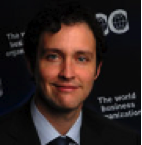
Carlos Busquets
Deputy Director, Policy and Business Practices, International Chamber of Commerce, Paris
The EnergyPact – UNCTAD conference recognizes the pivotal role that emerging countries will have in the transition towards a green economy. The private sector will be the main source of finance and investment to build a green future and companies helping achieve this working across global supply chains. The key will be for governments to provide a stable framework for investment and green markets to scale up solutions.
Abstract
Increasing complexity, with an average of three investment treaties concluded per week. Questions about the extent of investor protection and the need for enabling environment and policy clarity in many countries. Given ICCs long-standing partnership with UNCTAD on investment issues I would also profile the upcoming Guidelines for International Investment that ICC is developing for 2012 which would help building common ground and understanding, and provide more clarity, predictability and transparency for companies investing across borders. My comments would also be in the framework of how to structure investment to move towards a low-carbon green economy as presented in the Systemic Conditions for transition to a Green Economy we will shortly release for Rio+20. Finally I would highlight the role of the G20 (and business as a partner) to spearhead the push to cooperative global solutions on these issues.
Biography
Carlos Busquets is Policy Manager for the ICC Commission on Environment and Energy. He is responsible for international policy matters related to climate change, sustainable development, energy and water.
Mr Busquets possesses extensive expertise in the policy and practice of international economics with a diverse background in both the public and private sector. Throughout his career, he has advocated and represented business views in varied international forums.
As a former international trade negotiator for the US Department of Commerce, Mr Busquets participated in the negotiation and implementation of bilateral and regional agreements in the Western Hemisphere. More recently he spent time at the OECD Trade Directorate analysing issues related to trade and environment, trade facilitation, and internationalization for small- and medium-sized enterprises. In addition to his experience in governmental and international institutions, Mr. Busquets began his career in the private sector with Mattel Toys working on international issues from the perspective of a large multi-national firm. Mr Busquets has a Master of Arts degree in International Political Economy from American University in Washington DC and a Bachelor of Arts in International Studies from the University of South Florida. He is fluent in English, Spanish and French.
C

James Cameron
Executive Vice Chairman Climate Change Capital, UK
This event has chosen a subject of profound importance for the world. The dynamics of energy markets are increasingly driven by emerging economies rising middle classes with growing consumption ensures greater resource use and increased competition for all basic resources. Energy access is a serious political as well as economical issue. Climate Change amplifies risk across the world, and in places where water and food resources are scarce, famine, migration and social unrest threaten peace and security – the mandate of the United Nations. We need to look for answers in resource productivity. The innovation required to develop a greener economy will bring huge opportunity to emerging powers for producer nations as a natural “hedge” from high to low carbon, and for nations exposed to high cost inputs the prize is greater independence and flexibility.
Abstract
Recent reports from IEA and Mckinsey display the imperative to reduce greenhouse gas emissions and improve resource productivity. We need to rethink the use of Government in delivery solutions to global public goods problems. Subsidies, competitiveness, infrastructure investments all need to fit inside a new structure of ideas. The Green Climate Fund, Development Bank lending, a specialized delivery mechanisms must reward climate risk reduction, increased resilience and resource efficiency.
Biography
James Cameron is an executive Vice Chairman of Climate Change Capital of which he was one of the founding members. He is a main board member and represents the firm at the highest levels of business and government. James is a member of GE’s ecomagination board, Pepsico UK’s advisory board, chairman of the World Economic Forum’s Agenda Council on Climate Change, a trustee member of the UK Green Building Council and of the Carbon Disclosure Project, a member of the Prime Minister’s Business Advisory Group and was a member of the Green Investment Bank Commission. He is also a member of the High Level Advisory Committee to the World Congress on Justice, Governance and Law for Environmental Sustainability organised by the United Nations Environment Programme.
James is a pre-eminent expert in developing policy responses to climate change. Prior to CCC he was Counsel to Baker & McKenzie and was the founder and the head of their Climate Change and Clean Energy Practice. James has spent much of his legal career working on climate change matters, including negotiating the UNFCCC and Kyoto Protocol as an adviser to the Alliance of Small Island States.
He has held academic positions at Cambridge, London, Bruges and Sydney and is currently affiliated with the Yale Centre for Environmental Law and Policy. As a barrister he appeared in several of the leading cases in international and environmental law. James is also a member of Oxfam’s development board, a senior advisor to the Climate Group, chairman of China Dialogue, a member of the development board at the University of Oxford’s Smith School of Enterprise and the Environment and most recently a member of the High Level International Advisory Committee to the World Congress on Justice, Governance, and Law for Environmental Sustainability.
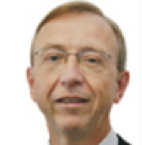
Ron Cameron
Head, Nuclear Development Division OECD Nuclear Energy Agency
Demand for energy continues its inexorable rise and governments have to meet that challenge by developing energy sources that are affordable, safe, satisfy the need to limit climate change and provide the country with security of supply. How all these priorities can be met is a key challenge for the future. Nuclear power has been part of that solution for many years, but in the light of the Fukushima Dai-ichi accident, some countries are reconsidering their use, while others have confirmed it. How will nuclear develop in the next decades is therefore an important debate.
Abstract
To understand the current and potential role of nuclear power, it is important to see how it contributes to providing countries with security of supply, at an affordable price and in a secure manner. This presentation will consider the safety, economics and environmental performance of nuclear globally, while considering what role it might play in the future in comparison with other energy sources and what are the challenges it must face to be a long term energy source.
Biography
Dr Ron Cameron is Head of the Nuclear Development Division of the OECD Nuclear Energy Agency, which provides advice to 30 member governments on policy and strategic issues related to all aspects of nuclear power development and the nuclear fuel cycle. Previously, he held senior roles at the Australian Nuclear Science and Technology Organization. He has over 30 years of experience in nuclear science and technology in the UK, Australia and with the IAEA, involving both power and research reactors. He has had extensive involvement in nuclear policy advice, international affairs and strategic planning.

Paul Clements-Hunt
Head UNEP-FI
With energy demand in emerging economies booming, it is evermore important to intensify the dialogue between the sustainable community and leaders of emerging economies. My hope is that the 2011 EnergyPact Conference will be a turning point in this process – and conclude with a clear signal to Rio+20 conveners that the developing world intends to play a key role in the multilateral fight against climate change.
D

Petko Draganov
Deputy Secretary-General of UNCTAD
Biography
Petko Draganov assumed his functions as the Deputy Secretary-General of UNCTAD on 1 May 2009, following his appointment by the United Nations Secretary-General.
Mr. Draganov was born and educated in Sophia, before receiving an M.A. in International Law from the Moscow State Institute for International Relations. Mr. Draganov began his diplomatic career in the Information Department of the Bulgarian Ministry of Foreign Affairs working largely on African affairs. From 1993 to 1998 he was Ambassador to South Africa, Namibia and Botswana, and in 1998 was appointed as the Permanent Representative of Bulgaria to the UN and other International Organizations in Geneva.
From 2001 to 2005, Mr. Draganov was the First Deputy Minister of Foreign Affairs of Bulgaria, in charge of multilateral diplomacy, development, disarmament and European integration issues. He also served as Chairman of the National Commission on UNESCO, Alternate Representative of the Republic of Bulgaria to the UN Security Council and Special Representative of the Chairman-in-Office of the OSCE to Moldova.
Mr. Draganov served a second term as Bulgaria’s Permanent Representative in Geneva from 2005 to 2008, and in 2008 was President of UNCTAD’s Trade and Development Board. In that capacity he contributed to the successful outcome of UNCTAD XII, chairing the UNCTAD XII Preparatory Committee and Committee of the Whole.
E
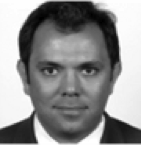
Johnny El Hachem
Head of Environmental Finance, Edmond de Rothschild Group, Switzerland
In the wake of the current financial crisis with limited access to credit markets and certainty about the profitability and bankability of projects, transition towards a more sustainable global economy can only be achieved through the collaboration and partnership of both private/public actors. The Energypact UNCTAD conference acts as an important vehicle towards fostering partnership and working towards the achievement of more sustainable development.
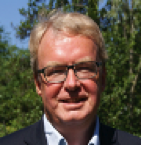
Poul Engberg-Pedersen
Deputy Director General, International Union for Conservation of Nature, IUCN
In today’s fast-changing and interconnected global economy, it is becoming increasingly urgent to improve international cooperation in addressing the major challenges of the future. Our capacity to adapt to and overcome these challenges is being increasingly compromised by climate change and environmental degradation. IUCN is committed to achieving sustainability, and sees this conference as a timely opportunity to further explore and advance the solutions needed to catalyze the necessary transition to a green economy. This transition will not be possible without the active engagement of all sectors of social and economic activity across all five continents. Emerging economies, in particular, will have a key role to play in setting a new course for development and in making the economy of the future a more resilient and sustainable one. IUCN welcomes the opportunity to contribute to this challenging task, and looks forward to collaborating with the global leaders convened at the Energypact UNCTAD conference in building the momentum needed to transition to a truly green world economy.
Abstract
As the adverse impacts of climate change and environmental degradation are being increasingly felt around the world, our economies can no longer afford to wait for climate negotiators to agree on a way forward. Fortunately, many efforts are underway to drive the bold and far-reaching changes needed to achieve sustainable development, notably through the establishment of forward-looking strategies and action plans aiming to foster low-carbon development and growth. De-carbonizing our economies is a critical step forward, but it is just one piece of the broader challenge to improve the sustainability of our relationship with all of our planet’s precious natural resources. For a green economy transition to be truly green, it needs to aim to make natural capital the fundamental building block upon which our economic development is based. Only by empowering societies so that they can thrive on the sustainable supply of critical goods and services provided by nature will we be able to build a truly equitable, resilient, and sustainable economy.
Biography
Poul Engberg-Pedersen is a 57 year old Danish citizen, with a PhD in political science and development studies. He joined the International Union for Conservation of Nature, IUCN , at its headquarters in Gland, Switzerland on 16 May 2011.
From 2005 to 2010, Poul Engberg-Pedersen was Director General of Norad, the Norwegian Agency for Development Cooperation which is a directorate under the Norwegian Ministry of Foreign Affairs. He led the transformation of Norad from an implementing agency to a policy-supporting knowledge centre for Norway’s large and ambitious development cooperation. This included its global initiatives on biodiversity, rain forests, climate change and clean energy.
Prior to this Poul has also worked for the United Nations on refugee issues in Africa, and for the World Bank on governance and anti-corruption. Between 1994 and 2002, he headed a Danish government research centre on development. Earlier, he worked on environmental management and development effectiveness for a Danish consultancy company. Achieving results on the ground has been his ambition throughout his career, starting in Ethiopia in 1977.
G
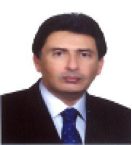
Narsi Ghorban
Secretary General of the Environment and Green Energy Commission, Iranian Committee of ICC
This conference is timely and discussing a very important subject.It is timely because it is organized a few days from COP 17 in Durban and nearly seven months from a very important conference in Brazil (Rio+20). It can add input to both these important events and allow discussion of various topics that cannot be adequately dealt with in Durban and Rio due to time constraint.The conference is dealing with the emerging economies approach to “Green Economy” which is currently the most important issue pursued by UNEP, UNCTAD, ICC, BASD and many developed and developing countries. Green Economy in the context of sustainable development and poverty eradication has been declared a priority theme of the United Nations conference on Sustainable Development in 2012.

Dolf Gielen
Director, Innovation and Technology Centre, IRENA
Dolf Gielen is the director for innovation and technology at the International Renewable Energy Agency IRENA. He has worked for twenty years in energy policy advice for organisations such as IEA and UNIDO. In recent years he managed large international technology deployment programmes in the field of energy efficiency and renewable energy in countries such as India, Ukraine and Russia. Mr Gielen has a PhD from Delft University of Technology in the Netherlands.

Philippe Girard
Vice-President, Mercuria Energy Trading
Abstract
By 1990 non-fossil plants generated 36% of the worldwide supply (nuclear 17%, hydro 18% and others 1%). Last year, non-fossil plants generated only 32 % of the worldwide supply (nuclear 13%, hydro 16 % and others 3%). Taking into account this evolution one can have two readings:
Nuclear energy is a decreasing share of the energy mix and therefore due to the potential risks (safety, proliferation, ageing plants, waste, etc.) it’s worth to progressively ban the use of nuclear energy in the world.
Between 1990 and 2010, in spite of a limited growth of installed capacity, nuclear reactors generated 765 TWh more (hydro +1266 TWh, other renewable sources + 577 TWh, fossil plants +6856 TWh). Nuclear energy is not the sole solution to fight the climate change but it is one of the scarce tools available now for a limited number of countries having the necessary requirements (education, legal environment, financial ability, political stability, etc.).
Biography
The French nuclear reactors: report to the French Prime Minister (2000)
Nuclear investments and markets (2004) WEC 2004
Sunburn-Sunset: two scenarios for worldwide nuclear energy (2006) Global Chance
H

David Harris
Director of International Logistics Investments, Foreign Investment Office, Dubai
The growth of emerging markets has been nothing short of staggering these last few years, which is why it is equally important to embrace green tech solutions. A growing population and infrastructure puts significant strain on our limited resources and it is time we adopted alternative methods of growth.
Abstract
Dubai has established a number of green technology implementations over the last couple of years. With Proof of concept being established across various industries, Dubai is slowly making its mark in the greentech world. David Harris will provide a brief overview of how green technology can not only help the environment but save money and enhance efficiency.
Biography
David is a veteran of the logistics industry with over 33 years of experience including 16 years in the Middle East. He has held several senior positions with some of the leading organisations in the region.
In his role as Director of International Logistics Services at Dubai FDI, David assists in providing impartial advice and support to organisations aiming to establish their operations in Dubai to serve local, regional and international markets offering assistance during the full investment cycle.
David has a wealth of experience assisting business start-ups and offering consultancy services for businesses seeking to enter the Middle East markets, specifically for Dubai.

Jim Henderson
Lambert Energy, London
Emerging economies are clearly going to be the engines of growth for the global economy over the coming decades and as such their energy needs are set to grow dramatically. In the context of the environment, decisions these countries make will therefore be vital in determining whether a greener economy can be developed and if so how. Energy importing countries can establish policies to increase demand for greener energy sources, while energy exporting countries can begin to adjust their supply portfolios towards a more environmentally friendly portfolio of products. The transition for these latter countries is unlikely to be easy, however, especially if they are hydrocarbon producers, and as such this conference can provide a vital forum for the discussion of realistic and practical contributions that emerging economies can make towards the drive for a greener global economy.
Abstract
In the drive to create a greener economy government policy has focussed on the promotion of carbon-free sources of energy such as wind and solar at the expense of fossil fuels. However, as the costs of this policy shift are being fully exposed, so gas is re-emerging as a potential transition fuel and perhaps even a realsitic base load fuel in a greener world. In such an environment Russia provides a prime example of how emerging economies can help in the transition to a green economy. Domestically Russia’s main contribution to reducing carbon emissions can be in increased energy efficiency, reducing excessive demand and curbing watse such as gas flaring. In a supply and export context, Russia can provide a foundation of secure export sales to East and West, and can encourage a more competitive environment for gas supply to ensure that this is provided at a price which continues to encourage a demand shift away from coal and in some instances oil. However, Russia is unlikely to promote technologies that develop energy sources that would undermine gas, given the importance of the fuel to its domestic economy.
Biography
Dr. James Henderson has been working in the oil and gas industry as an investment banker, consultant and commercial manager for the past 25 years, and has been analysing the Russian energy industry from a business and academic perspective for the past 15 years. He is cureently Head of Russia at Lambert Energy Advisory, a strategic energy advisory boutique based in London, and is also a Senior Visiting Research Fellow at the Oxford Institute for Energy Studies, where he has published a book on the Russian Gas Industry as well as a number of working papers on the Russian Energy Sector.
L
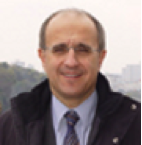
Raymond Leban
France, VP Corporate Strategy, EDF
The climate change issue is now at a crucial point after the huge change that happened in Copenhagen. The “common but differentiated responsibility” concept that has largely driven the process up to now by separating the roles of developed and developing countries, is presently taking a new profile. Emerging countries and a group of other fast growing countries named here “the 3Gs”, although not ready to be constrained by a top down process, are realizing that their growth prospects enable them to green their growth and make a positive contribution to the collective emissions reduction action. The pledges announced two years ago are becoming reality and this reality is a proof of this “new deal”. It seems worth for the international community to recognize such a platform of countries and to strengthen collective efforts for the greening of its members’ growth to occur (through increasing use of cost-effective /energy efficient technologies), given the absolute and relative size of their energy needs. Indeed, better understanding of what their effort in this direction is and how it can be fostered through cooperation with developed countries in the framework of voluntary deals might be more fruitful than going on trying to design differentiated emissions reduction obligations for all countries in a top-down approach. For this cooperative approach to work, 3Gs and developed countries must accept to implement the emissions monitoring, verification and reporting mechanisms deemed necessary to ensure the effectiveness of emissions reductions and conditioning 3Gs countries’ access to multilateral financial and technological support schemes (like the Green Climate Fund and the Technology Mechanism), built under the recent accords. Developed countries are important potential contributors as regards building capacity in green energy solutions engineering and operation.

Roderick Lawrence
Faculty of Social & Economic Sciences, University of Geneva
Cities have a crucial responsibility in meeting international goals, national objectives and local needs that promote the RIO+ 20 agenda. It is necessary to reconsider the construction of housing and urban development in a broad environmental, economic, social and political context that explicitly accounts for health, environmental justice and equity.
Abstract
Building and managing a city involves choosing between a range of options in order to achieve numerous objectives. This paper argues that it is necessary to reconsider the construction of housing and urban development in a broad environmental, economic, social and political context that explicitly accounts for health, environmental justice and equity. Prior to the conclusion, the author suggests and illustrates a few innovative approaches in several European countries. Hopefully, these kinds of contributions will serve as a catalyst for many more innovative projects in the near future.
Biography
Roderick Lawrence is Professor at the Faculty of Economic and Social Sciences at the University of Geneva, Switzerland. He is head of the Human Ecology Group at the Institute of Environmental Sciences. He has a Bachelor’s Degree (First Class Honours) from the University of Adelaide, a Master of Letters from the University of Cambridge and a Doctorate of Science from the Ecole Polytechnique Fédérale de Lausanne. His research interests include interdisciplinary and transdisciplinary contributions to deal with complex environmental questions, human ecology, sustainable development, participatory approaches for land-use planning, and health and quality of life in cities. He is Director of the Certificate of Advanced Studies in Sustainable Development as well as the Global Environmental Policy Programme (GEPP) at the University of Geneva. Since 1997, he has been an Associate Member of the New York Academy of Sciences.
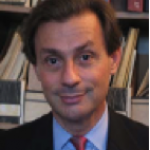
Paolo Liebl von Schirach
The Schirach Report, Washington
“This Event is very timely. The world needs a practical, non dogmatic approach on how to deal with expanding energy needs, while safeguarding the environment. Lack of affordable, clean energy is the number one stumbling block to sustainable development in emerging economies, while energy represents an increasing cost and a growing environmental challenge for developed countries. This Conference provides an ideal forum for all stakeholders representing diverse constituencies to meet with policy makers and look at what is available now (fossil fuels, renewable sources) and consider what may be the most appropriate mix, depending on specific circumstances”.
Biography
An expert in international economic development & investment and trade promotion, Mr. Von Schirach has 17 years experience in the field. He focuses specifically on capacity building in investment promotion institutions, strategic planning, regional integration issues, and trade promotion strategies for projects sponsored by USAID, EU Commission, United Nations Development Program (UNDP), World Bank Group, and international businesses. His background also includes experience in project planning and management, project monitoring & evaluation, private sector development, trade development, economic planning, industrialization, and public-private partnerships. In his recent role as Economic and Trade Specialist with AVANZ International, Mr. Von Schirach served as senior team member on the Mid-Term Review of the EU-South Africa Country Strategy (2007-2013), the world’s largest foreign assistance program directed at South Africa. As Team Leader and Senior Investment Expert for the EuropeAid Co-operation Office (EC), Mr. Von Schirach worked with the Zambia Development Agency (ZDA), and organized 9 Provincial Workshops on national investment and trade strategies in Zambia. He also developed and maintained relationships with local public officials and private sector stakeholders at the provincial and district level, analyzed and prioritized foreign direct investment (FDI) strategies and trade opportunities, and provided new benchmarks for an improved investment climate.
Mr. Von Schirach is familiar with all aspects of USAID regulations, having served as a Team Leader and Senior Trade Expert on USAID’s COMESA (Common Market for Eastern and Southern Africa) Rules of Origin Project in Zambia, and as Senior Investment & Business Development Specialist for USAID on the Information & Communication Technology (ICT) Project located in Egypt. Mr. Von Schirach has a detailed understanding of project design, is experienced with multi-donor funding mechanisms, and is familiar with donor regulations and policies. He excels at managing goal-coordination teams for work with the EuropeAid Co-operation Office (EC), USAID, World Bank Group, and the UN system. Mr. Von Schirach has an in depth understanding of technical assistance evaluation issues, country ownership, program sustainability, assessment of institutional capacity, financial sustainability, policy support and overall program coherence. He is familiar with regional and bilateral trade agreements (including World Trade Organization (WTO) Accession) and investment promotion and trade-related technical assistance needs for very low income countries. He has extensive field experience in countries such as Egypt, Mozambique, Zambia, Cambodia, and Bangladesh. Mr. Von Schirach has taught graduate courses at Georgetown University on International Development and PPPs. He holds a “Dottorato” in political science from the University of Pisa, Italy, an M.Sc. in international relations from The London School of Economics, an M.A degree in government from Georgetown University in Washington DC (where he was a Fulbright Scholar and Fellow) and a Diploma in political science from the Sant’ Anna School of Advanced Studies in Pisa, Italy.

Joe Lufkin
Director, Industrial Finance Corporation, Philippines
Infrastructure, the physical fabric by which a society organizes itself, is sometimes taken for granted but in fact is a major determinant of quality of life and driver of growth – especially in our rapidly-growing cities. The challenge today is to sustain economic development without further ruining our environment and climate or running out of energy.
At the same time, we must devise new ways to mobilize investment in the infrastructure needed, and do so at a time when our financial markets are under tremendous pressure and the massive debts of the last credit bubble need to be cleared.This conference will surely be a solid contribution to the global debate on these problems, and will generate new ideas, new actions and new mechanisms to solve them.
Biography
Mr. Lufkin has founded, managed and sold several successful institutional investment and financial businesses operating in markets ranging from currencies, futures and capital markets in NY and London, to private equity and property in Asia. He has been a consultant to numerous international financial institutions over the past 30 years, including the Asian Development Bank (ADB) since 1998, working with privatizations, private equity, infrastructure, energy, and climate-related investment funds, as well as project advisory services for public-sector agencies in Asia. A Yale graduate (BA 1976), Mr. Lufkin worked at Sotheby’s and Christie’s in London and New York before entering banking. He is a director of Infrastructure Finance Corporation Ltd., Industrial Finance Corporation Ltd., and Origination Capital Ltd., and co-founder and first president of the International Institute for Investment in Infrastructure & Climate (i4C), a Swiss foundation based in Geneva.
M

Anne Miroux
Director, Division of Technology and Logistics, UNCTAD
Ms. Anne Miroux started her United Nations career in 1979 in New-York in the UN Centre on Transnational Corporations and was involved inter alia in the negotiations on the Code of Conduct on Transnational Corporations. Ms. Miroux then joined UNCTAD where she served in a number of positions, including as Chief of the Banking and Insurance Unit in the Division on Services Infrastructure and Trade Efficiency; Chief of the Investment Trends and Data Analysis Section in the Division on Investment, Technology and Enterprise and Chief of the Investment Analysis Branch in the same Division (now DIAE). She was for several years the team leader of the UNCTAD flagship report, the World Investment Report. At present, Ms. Miroux is Director of the Division on Technology and Trade Logistics (DTL) in UNCTAD. DTL includes a number of technical assistance programmes and activities, among which is ASYCUDA (Automated System for Customs Data), the largest technical assistance programme of UNCTAD.
Ms. Miroux holds an MBA (Diplome de l Ecole des Hautes Etudes Commerciales- HEC, France), a Master in political sciences (Institut d’Etudes Politiques- IEP Paris) and a PhD in Economics (Paris I – Sorbonne).

Ranjit Murugason
Founder & Managing Director Urban Strategic Pte. Ltd.
Infrastructure is still today regarded as fundamentally a public sector investment. Primarily, as infrastructure is the very back bone of every nation, government’s must lead the policy and development of the same, as, without proper infrastructure there can be no development of social, health and economic benefit for a nation. However, today’s challenge is: how to finance such investment (when so many nation’s are struggling with financing development) ; and how to ensure ‘clean’ infrastructure programmes (which many developing nations see as a luxury and a reaction to the excess of the developed and large manufacturing economies). The challenge is to balance these objectives and fundamentally seek private sector involvement- how do we encourage and harness private sector financing and operational development excellence in global infrastructure?
Abstract
Infrastructure development models
The rise and rise of PPP in infrastructure
Privatization vs PPP
Which infrastructure should be developed by government and which infrastructure should be developed by the private sector.
Biography
Ranjit has over 21 years of experience in the corporate, investment banking and strategic advisory sectors. This experience has been principally in the areas of privatisation advisory to governments, debt and equity capital markets advisory to corporates, and in infrastructure restructuring and financing to both corporates and governments. Ranjit runs his own advisory firm which has recently relocated from London to Singapore given the infrastructure development requirement in this region.
Ranjit qualified as a Barrister in London before moving into investment banking in fixed income origination and execution at Nomura Securities in 1990. At UBS in 1994, he was initially in equity capital markets and later in corporate finance. Ranjit joined ABN AMRO in 1998, and became their Global Head of Industrials, and concurrently their Global Head of Transport & Infrastructure. He also served on ABN AMRO Group’s Management Committee for Investment Banking and Global Industrial clients. Over 13 years in the London in investment banking, Ranjit has advised on transactions globally totalling more than US$50 billion. Since establishing Urban Strategic in 2003, Ranjit has advised on infrastructure transactions, predominantly in Asia with a value in excess of $5-10 billion.
Ranjit led many of the landmark aviation & infrastructure advisories globally in the last 14 years, examples being: China’s privatisation of Beijing Capital International Airport by way of a combined cornerstone strategic stake sale of 10% to Aeroports de Paris and the subsequent IPO process on the Hong Kong Stock Exchange in 2000 (the first transaction of its kind in the infrastructure sector); GMR Group (the largest Indian infrastructure conglomerate in India) on winning the bid for Delhi International Airport’s privatisation in 2005/6, and its subsequent US$2.3bn financing for its development and major expansion into a 35 million passengers annual capacity gateway airport into India; GMR Group bid for operating Istanbul Sabiha Gökçen International Airport PPP; the GMR Group US$620m financing for the greenfield development of Hyderabad International Airport in 2006-2007, which GMR built in just 30 months; GMR Group’s bid for InterGen, one of the world’s leading independent power producers with a total gross capacity of 8,080 MW. GMR was awarded Infrastructure Journal’s “Infrastructure Deal of the Year” in 2008 for the acquisition of InterGen. Ranjit has also been involved in advising from the time of the UK government’s energy privatisation efforts, and later on in the mid-1990s in the UK electricity industry advising on the takeover bids of Northern Electric and South West Electricity Board, by Trafalgar House/Jardine Matheson and Southern Electric of Georgia respectively. Ranjit advised in the oil and gas sector when in 1998 in South Africa, he advised Engen on its takeover bid by Petronas of Malaysia
Ranjit holds a Bachelor of Laws (LLB, Hons) from the University of London and a Masters of Law (BCL) from the University of Oxford. Ranjit was a barrister and was called to the Bar of England and Wales in 1989 at the Middle Temple.
N

Christophe Nutall
Director of the Hub for Innovative Partnerships, UNDP
Abstract
Sub national authorities stand for 75 % of potential mitigation and adaptation measures including energy efficiency, clean transport, production of renewable energy, green jobs …. There is a need to support developing and emerging regions and cities to design their proper projects and then access the investors to implement these projects. UNDP TACC and R20 mission are now working on the required deal flow.
Biography
Christophe NUTTALL, 50 years old, has an engineer degree in ecology and a PHD in geography in the field of development. After having worked in the field in Senegal, at space engineer at CNES (French spatial Agency) then a scientific advisor within the French ministry of foreign affairs, where he contributed to launch the Mitterrand – Kohl’s Arch Summit initiative on the Observatory of Sahel and Sahara he then joined the United Nations Systems: UNITAR and later UNDP.
He has been in charge of developing partnership with sub national authorities. He has developed a number of initiatives among which the Territorial approach to Climate change which aims at charting a new low-carbon route to development at sub national level. This initiative is now supported by different UN programmes and agencies, with a number of associations of regions and coalition of the private sector such as the World Energy Council, the International Chamber of Commerce ….
He will soon join as Executive Director, the R20 organization set up by Governor Arnold Schwarzenegger to continue world wide his Green Economy Action he successfully started in California.
P

Amit Pathare
Chief Analyst, Strategy, Energy Economics & Risk Advisory, GDF SUEZ
The prevailing economic conditions are poised to be a severe challenge to the global commitment to sustainable development and fighting climate change. The upcoming COP17 session in Durban and the “Rio + 20″ Conference on Sustainable Development scheduled for next year represent opportunities to reaffirm this commitment. But this means understanding the nature of the options and the investment choices that we need to make in order to create an optimal energy mix. The timing and coverage of the EnergyPact-UNCTAD Conference is thus apt!
Abstract
The need for a balanced approach to different technologies and in the context of a global strategy – the GDF SUEZ experienceThe impact of technological improvements translated into economic terms – synthesis of research.Promoting access to sustainable energy solutions on a global scale.
Biography
Amit Pathare is an experienced energy/utilities sector executive, having worked across Europe, N. & S. America, India and East Asia over the past 15 years. He is currently based in Brussels in the Strategy & Sustainable Development division of GDF SUEZ, and leads the teams responsible for analysis/oversight of investment economics and markets for the UK, Iberia, Scandinavia, North and Latin America. His past work spans stints in management consulting and industry, and covers the areas of Strategy, Governance, Regulatory policy, M&A transactions, Legal arbitrations, Operations and Risk Management. Amit has Masters degrees in Chemical Engineering (IIT Bombay) and Public Policy (Harvard Kennedy School), and is a Certified Energy Manager (Bureau of Energy Efficiency, Govt of India). He is married with two children.
R
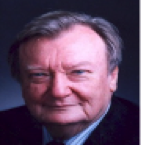
Carlo Rubbia
Nobel laureate, Physics 1984, Italy
Our society will depend crucially on uninterrupted and differentiated energy supply. Major new steps have to be taken in order to avoid potential geo-political and price vulnerability.
In order to reconcile sustainable development and economic growth with the threat of environmental decay, only two main forms of primary energy ere accessible, namely solar both direct or indirect (like wind and hydro) and nuclear. But neither solar nor nuclear are todays energies: radically new solutions are required, relaying on truly innovative scientific and technological developments.
The main open question is if mankind will reach promptly enough the common political will to act in front of these dangers and be capable to understand and assess the conditions necessary for avoiding the menaces. These are global problems that humanity is poorly equipped to handle. The coherent exploitation of human capital of the most educated societies is the decisive factor. In a world in which numerical growth may become decoupled from a more radical scientific and technological innovation, it is unclear if humanity will take up the challenge of qualitative growth or if it may instead evolve in a pattern of slower development that could become stagnant and decay. Only through a concentrated and coordinated effort, leadership can be targeted and the objectives of creating a new energy scenario in which high quality employment opportunities and a better quality of life can be met.
Biography
Carlo Rubbia graduated in Physics at Scuola Normale of Pisa and Columbia University (USA). Since 1961 he has been working at CERN, Geneva. From 1972 to 1989 he has held the Higgins Professorship of Physics at Harvard University. He was appointed Director General of CERN in 1989 for a five years’ mandate. From 1999 to 2005 he was the President of the Italian National Agency for New Technologies, Energy and the Environment (ENEA). He is currently principal Scientific Adviser of the Spanish Research Centre for Energy, Environment and Technology (CIEMAT), and a member of the high-level Advisory Group on Energy and Climate Change set up by EU’s President in 2007. Since March 2009 he is Special Adviser for Energy to the Secretary General of ECLAC, the United Nations Economic Commission for Latin America, based in Santiago (Chile). Rubbia is noted for his work in high-energy physics using the considerable accelerator capacity of CERN. In 1984 Rubbia shared the Nobel Prize in Physics with Simon van der Meer in 1984 “for their decisive contributions to the large project, which led to the discovery of the field particles W and Z, communicators of weak interaction”. During the 1990s Rubbia proposed the concept of an energy amplifier (ADS) – a novel and safe way of producing unlimited nuclear energy from natural thorium exploiting present-day accelerator technologies. More recently, he developed a novel method for concentrating solar power at high temperatures for energy production, known as the Archimedes Project, which is presently being developed by industry for commercial use.

Andrew Rudd
Urban Environment and Planning Branch, UNHABITAT
As the world struggles to recover from a financial crisis, cities — particularly fast-growing ones in the developing world — will have to drive future economic growth despite an approaching resource limit and the resultant increase in energy prices. Urban configuration is key. Cities’ inherent agglomeration advantages provide the significant opportunity for them to decouple growth and wellbeing from environmental degradation. But they need to know how. This conference presents the perfect forum for sharing experiences on what cities around the world can and have done to leverage their assets for sustainable growth.
Abstract
To better respond to the needs of fast-growing, intermediate-sized cities in the developing world, UN-Habitat proposes a series of urban patterns that will help these cities transition to a green economy. Focused on urban ecosystems, density, infrastructure and enterprises, the aim is to help city-regions strengthen their spatial planning strategies for more sustainable configurations. Cities in the developing world have the advantage of transitioning early, before they are locked into inefficient patterns.
Biography
Andrew Rudd is a Human Settlements Officer in the Urban Environment and Planning Branch of UN-Habitat in Nairobi. He serves as focal point for the agency’s green economy and cities and biodiversity initiatives and has represented UN-Habitat in the Environmental Management Group’s IMG on the Green Economy, the International Resource Panel’s Cities Working Group and the Global Partnership on Cities and Biodiversity. At UN-Habitat he also led a photographic investigation of rapidly-growing small cities and coordinated the agency’s participation in the Shanghai World Expo 2010. Prior to joining the UN he worked as an architect in New York. Mr Rudd studied architecture at Yale and City Design at LSE.
S

Steven Stone
Chief of Division of Technology, Industry and Economics UNEP
Biography
The Chief of UNEP’s Geneva-based Economics and Trade Branch. Dr. Stone holds a M.Sc. and Ph.D. in Resource Economics from Cornell University and has more than 20 years of professional experience in environmental and natural resource management. Prior to his position with UNEP, Dr. Stone worked for the Inter-American Development Bank in Jamaica and Ecuador as a Senior Environmental Specialist, and also in Honduras as IADB’s Country Representative. Dr. Stone has also contributed to large scale investments in natural resource management in Panama and Brazil, as well as capacity building and technical assistance in areas related to environmental economics. Prior to his positions at the IADB and UNEP, Dr. Stone also served with the World Bank and the Instituto do Homem e Meio Ambiente da Amazonia, IMAZON, a Brazilian think tank on issues related to the sustainable use of land and forestry resources.

Piotr Szymanski
Director General Energy, Director Nuclear Safeguard, European Commission
Prof. Szymanski welcomes that a major conference has been dedicated to the extremely important – and timely – discussion on the relationship between energy, environment and green economies. This subject not only involves emerging and developing countries, but affects?all nations across the globe. A balanced and sustainable energy mix is crucial for tackling climate change, and must be addressed in depth and with urgency.
Abstract
The energy challenges facing the EU are multiple: they range from ensuring energy sustainability and affordability, to the security of supply and improving and enhancing competiveness. In order to succeed the EU as a whole needs to maximise the use of a wide range of low-carbon energy sources and apply ambitious energy efficiency measures. The Commission intends to adopt?the “Energy Roadmap 2050″ by the end of 2011, which will explore options for decarbonising the EU’s energy system. The presentation aims to discuss some of the aforementioned topics.
Biography
Piotr Szymanski hails from Warsaw, Poland. He studied physics at Warsaw University, and went on to complete a PhD in experimental particle physics at the Institute for Nuclear Studies in Swierk, Poland. He worked as a research associate at the Rutherford Appleton Laboratory, and as well as a Staff Member at the European Organization for Particle Physics (CERN) in Geneva. He holds a habilitation in physics and is the author or co-author of more than 200 scientific papers in various fields of particle physics. Prof. Szymanski is currently Director of Nuclear Safeguards at the European Commission in Luxembourg, which is responsible for the verification and inspection of the non-diversion of nuclear materials at all civil nuclear installations within the European Union.
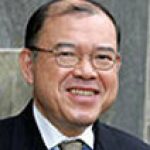
Supachai Panichpakdi
Secretary-General, UNCTAD
Biography
Supachai Panitchpakdi began his second four-year term as Secretary-General of UNCTAD on 1 September 2009, following his unanimous confirmation by the UN General Assembly.
Born in Bangkok, Dr. Supachai attended school there before receiving his Master’s Degree in Econometrics, Development Planning and his Ph.D. in Economic Planning and Development at the Netherlands School of Economics (now known as Erasmus University) in Rotterdam.
In 1973, Dr. Supachai completed his doctoral dissertation on Human Resource Planning and Development under the supervision of Prof. Jan Tinbergen, the first Nobel laureate in economics.
Dr. Supachai began his professional career at the Bank of Thailand in 1974, and in 1986 was elected to the Thai Parliament and appointed Deputy Minister of Finance. In 1988, he was appointed Director and Advisor, and subsequently President, of the Thai Military Bank. In 1992, Dr. Supachai was appointed Senator, and that same year he became Deputy Prime Minister, entrusted with oversight of the country’s economic and trade policy-making. In 2001, he was appointed Visiting Professor at the International Institute for Management Development in Lausanne. He has published a number of books, including Globalization and Trade in the New Millennium (2001) and China and WTO: Changing China, Changing World Trade (2002, co-authored with Mark Clifford).
Dr. Supachai previously served as Director-General of the World Trade Organization (September 2002 to August 2005).
V

Alfredo Valladao
Institut d’études politiques, Sciences Po, Paris
The world’s energy matrix is probably the main strategic issue of the 21st century. There will be no progress in the fight against hunger and poverty, and no way of keeping acceptable welfare standards without sustainable economic growth. And this will not be possible without a huge revolution on the way we produce and consume energy. The emerging economies of the South, with their dynamic growth rates and growing energy consumption are part of the problem. But they can – and will – be part of the solution. This conference is a timely event in this moment of crisis and opportunities where the search for new ideas and paradigms has become an urgent task.
Biography
Professor at the Institut d’études politiques de Paris (Sciences Po). President of the Advisory Board of EUBrasil Association (Brussels). Member of the Board of Trustees of UNITAR (United Nations Institute for Training and Research). Senior Research Fellow at the European Union Institute for Security Studies (EU-ISS – Paris). Former Director of the Mercosur Chair of Sciences Po and former Coordinator of the Working Group on EU-Mercosur Negotiations and of the International Conference of Forte Copacabana on “Defense and Security European-South American Dialogue”.
Journalist, columnist for Radio France International (RFI), he contributes regularly to CBN and BANDNEWS (Brazil). Former diplomatic and defense correspondent for the daily Libération (France). Member of the Editorial Board of the review Economia (Morocco). Founder and former member of the Editorial Board of the economic and geopolitical yearbook L’Etat du Monde (France).
He organizes and participates regularly in high-level conferences and workshops on international trade, regional integration, global diplomacy and security, Brazil and Latin America affairs. He has published extensively on these subjects.
W
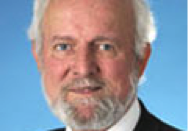
Ernst Ulrich von Weizsäcker
Co-Chair, International Panel for Sustainable Resource Management, Germany
Ernst Ulrich von Weizsäcker was born 25th June, 1939 in Zürich, Switzerland. He graduated with a Master’s Degree in Physics from Hamburg University in 1965 and obtained a Ph.D. in Biology from the University of Freiburg four years later. In 1972 he became Professor of Biology at Essen University. He served as Founding President of the University of Kassel between 1975 and 1980. He later occupied the positions of Director at the UN Centre for Science and Technology for Development, New York (1981) and of Director of the Institute for European Environmental Policy, Bonn, London, Paris (1984). Between 1991 and 2000 he served as Founding President of the Wuppertal Institute for Climate Environment and Energy. In 1998 he became a Member of Parliament (SPD), and was Chair of the Bundestag Study Commission on Economic Globalisation and consecutively of the Environment Committee. From 2006 to his retirement in 2009, he was Dean at the Bren School for Environmental Science and Management, UC Santa Barbara. He is currently a Co-Chair on the International Panel on Sustainable Resource Use.
Y

Wang Yuan
Chief Economist, China Development Bank
Financial service is a significant component of the economic and social life. In dealing with global challenges ranging from financial crisis, climate change, income discrepancy to energy and food safety, sustainable finance plays an indispensable role. China Development Bank is the world’s largest development finance institution and China’s largest bank engaged in overseas investment and financing cooperation. It is our hope that social justice, economic fairness and ecological equilibrium would consist a bigger leverage in our future financial services.
Abstract
Urbanization has been and will be the primary engines for economic and social development in China. To facilitate healthy urbanization, we must respect and follow the rule of urban development, recognize development constraints of resources, environment, institution and capital and provide sound solutions to ease the constraints. As a government’s institution devoted to development finance, China Development Bank plays a key role in promoting sustainable urbanization in China.
Biography
From 1990 till present, Wang Yuan has been engaged in professional areas of economic policy and financial regulation and operation, and has rich experience in macro-economic and financial policies, capital market development and financial regulation and supervision. From 1990 to 2006, Wang Yuan worked as the Economic Officer at the World Bank, Director of International Department of the Central Bank of China and China Policy Advisor in Hong Kong Securities and Futures Commission. During the decade working for China Development Bank, she has worked on international finance, international exchange, training and development, etc. and made great effort to the development of global cooperation between CDB and its partner institutions. As the authoritative scholar of economy and finance, Wang Yuan is now the Chief Economist & Director General of Education & Training Department, who is responsible for the analysis of macro-economy, international financial market and relative policies as well as training & development.
Particularly, Wang Yuan has been taking the leading role in the social responsibility work of CDB. Because of her positive and continuous effort, the excellent performance of CDB in social responsibility was awarded by UN Global Compact and as the representative of CDB, she does not only make the mark on CSR work of CDB, but also participates in international dialogues in this area, including anti-corruption working group of UN and drafting work on Principles of Responsible Investment.
Z

James Zhan
Director, Investment and Enterprise Division, UNCTAD
nvestment in clean energy in emerging economies has increased hugely in the past few years. These economies not only have the demand for clean energy but are rapidly developing the technology and have become leading producers and exporters. The question for the international community now, is how to spread these benefits to other developing economies and leverage private domestic and foreign investment in the sector, to provide both environmental and economic solutions.
Abstract
While global foreign direct investment flows increased moderately last year, they have yet to recover to pre-crisis levels. However, investment in clean energy and the low-carbon economy has been on the increase and offers the potential for an investment boom in the medium- to long-term. Foreign investment could play a big part in this, but will need to be supported by government policies, in both home and host countries, to promote investment in the sector and maximize its development impact.


